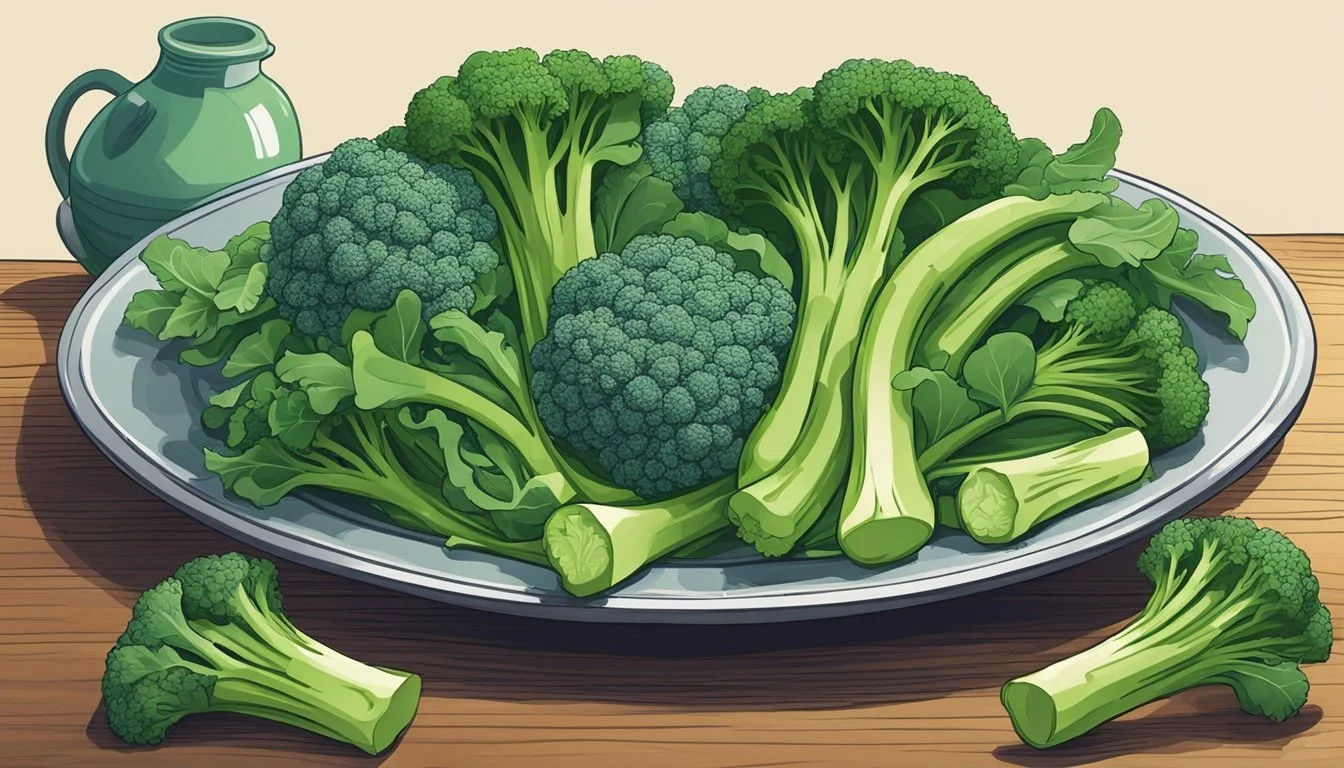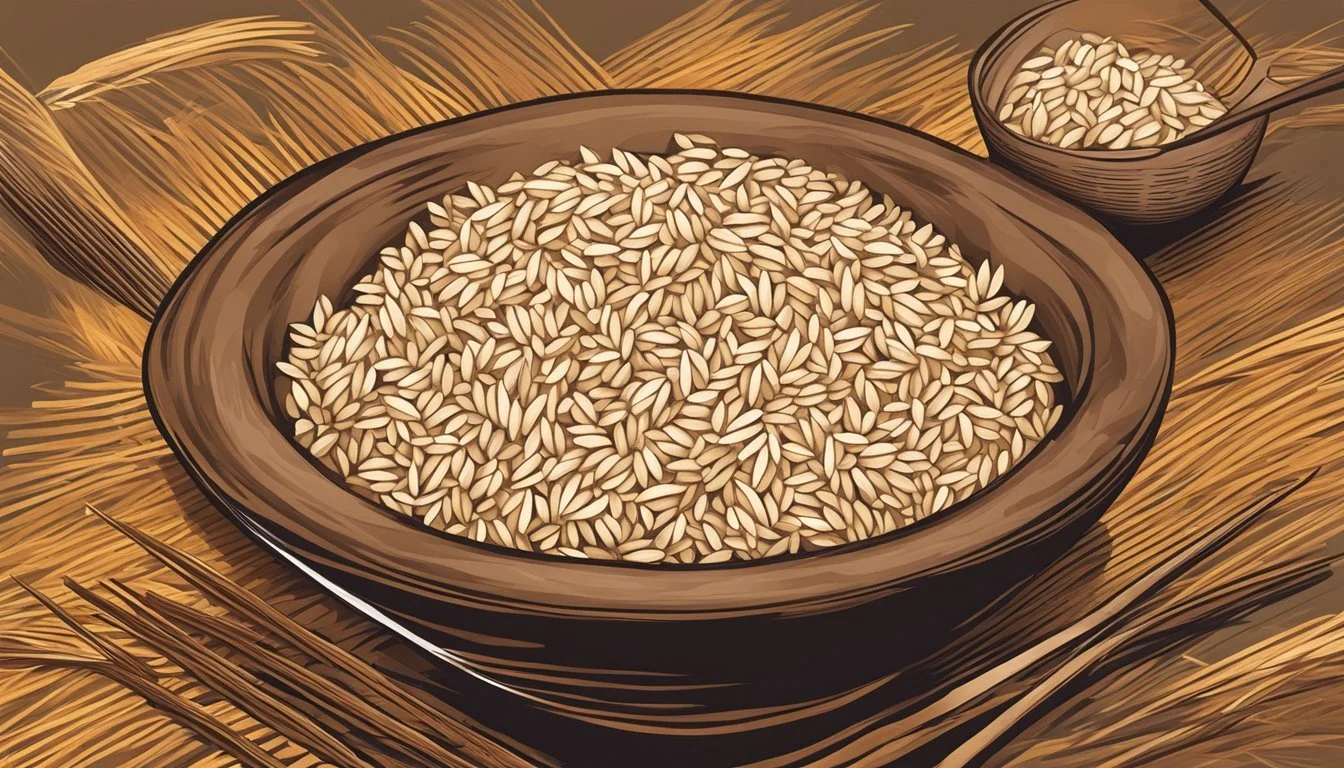Foods That Help Relieve Heartburn and Acid Reflux
Heartburn is a common ailment that many people experience, often caused by diet and lifestyle factors. Finding ways to manage this discomfort through dietary choices can be both effective and beneficial.
Identifying foods that alleviate heartburn can significantly improve one's quality of life. By making thoughtful changes to daily eating habits, individuals can reduce the frequency and severity of heartburn episodes.
1) Almonds
Almonds are often noted for their fiber content, which can aid in digestion and potentially help manage heartburn symptoms. They are considered a low-acid food and might be beneficial for those dealing with acid reflux.
Despite their benefits, almonds are high in fat, which can be a trigger for some individuals. The fat content might cause the lower esophageal sphincter to relax, potentially worsening heartburn symptoms.
For those with nut allergies, almonds should be avoided altogether, as they can cause severe allergic reactions. It is crucial to monitor individual responses to almonds and consider them within the broader context of one's diet and health needs.
2) Bananas
Bananas are a well-known fruit that can be beneficial in managing heartburn symptoms. They are low in acid, making them a gentle option for those with acid reflux.
These fruits are easy to incorporate into daily meals or snacks due to their convenience and straightforward preparation.
Bananas also contain a natural antacid effect, which helps coat the esophageal lining. This can reduce irritation and discomfort caused by stomach acid.
Additionally, bananas provide essential nutrients like potassium and vitamin B6. These nutrients support overall digestive health and can assist in maintaining a balanced diet. Bananas are easily digestible, further aiding those with sensitive stomachs.
Including bananas in the diet can be a simple and effective measure for managing heartburn naturally. They offer both nutrition and relief without the need for complicated preparation or ingredients.
3) Oatmeal
Oatmeal serves as a beneficial option for those dealing with heartburn. Its high fiber content can aid digestion, potentially reducing the occurrence of acid reflux symptoms.
Unlike fatty or acidic foods, oatmeal is unlikely to irritate the esophagus. Incorporating it into breakfast routines can set a soothing tone for the digestive system.
Additionally, oatmeal's ability to keep you feelingfull longer can prevent overeating, which is a known trigger for heartburn. This makes it a practical and healthy choice for managing symptoms.
Consuming oatmeal regularly can contribute to maintaining a balanced diet, supporting overall intestinal health.
4) Ginger Tea
Ginger tea can be a helpful remedy for those experiencing heartburn. It is known for its anti-inflammatory properties, which can reduce irritation in the esophagus.
Brewing fresh ginger tea involves slicing ginger root and steeping it in hot water. Consuming this tea in small quantities may help alleviate symptoms of heartburn.
Scientific studies suggest that ginger can relax the muscles of the lower esophagus. This relaxation may help in preventing acid reflux. However, moderation is key, as consuming large amounts of ginger might worsen heartburn in some individuals.
In addition to fresh ginger, ginger tea is available in dried or powdered forms. These can be used to make convenient tea bags or loose-leaf tea for a quick and effective solution.
Ginger tea also pairs well with other soothing ingredients, such as honey and lemon, which may enhance its heartburn-relieving effects. These additions not only improve taste but also contribute to the soothing properties of the tea.
5) Lean Poultry
Lean poultry is an excellent choice for individuals dealing with heartburn. It is low in fat, which helps prevent the relaxation of the lower esophageal sphincter, a common trigger for heartburn. Skinless chicken and turkey are particularly good options.
Grilling, baking, or broiling lean poultry rather than frying it can further minimize the risk of heartburn. These cooking methods help maintain the low-fat content, making it easier on the digestive system.
Incorporating lean poultry into a balanced diet not only helps manage heartburn but also provides high-quality protein. This can support overall health and wellness, making it a valuable addition to any heartburn-friendly meal plan.
Pairing lean poultry with non-acidic vegetables like green beans, broccoli, and leafy greens can create nutritious and heartburn-friendly meals. Additionally, seasoning with herbs instead of spices will help avoid potential triggers.
Regularly including lean poultry in the diet can contribute to better management of heartburn symptoms. It adds variety, ensuring meals are satisfying and nutritious while being gentle on the stomach.
6) Green vegetables
Green vegetables play a crucial role in a diet aimed at reducing heartburn. These vegetables are low in acid and high in essential nutrients that aid digestion.
Asparagus, broccoli, and green beans are particularly effective. These vegetables are packed with vitamins, minerals, and fiber that promote a healthy digestive system.
Including green vegetables in daily meals can help reduce the frequency and severity of heartburn. They not only support overall health but also create a balanced diet that minimizes acid reflux triggers.
Green vegetables are versatile and can be easily incorporated into soups, salads, and main dishes. They provide a satisfying and nutritious addition to meals without aggravating acid reflux symptoms.
7) Melons
Melons can be a beneficial addition to the diet for those struggling with heartburn. These fruits are naturally low in acid, making them less likely to trigger symptoms.
Watermelon, honeydew, and cantaloupe are popular varieties. They have a high water content, which can help dilute stomach acid.
Incorporating melons into meals or as snacks can provide hydration and a gentle digestion experience. Melons are also rich in vitamins and minerals, contributing to overall health while being gentle on the stomach.
Adding melons to salads, smoothies, or eating them fresh are practical ways to enjoy their benefits. Their subtle sweetness and refreshing nature make them a pleasant option for managing heartburn.
8) Non-citrus juices
Non-citrus juices can be beneficial for those experiencing heartburn. These beverages are less likely to trigger acid reflux because they are less acidic than citrus options.
Examples of non-citrus juices include carrot juice, aloe vera juice, and melon juice. These juices can soothe the digestive tract and help reduce the frequency of heartburn episodes.
Cucumber juice is another option, providing hydration and a gentle, refreshing taste. It can be blended with other low-acid fruits for a more varied flavor without increasing acidity.
One should also consider juices from vegetables like spinach and celery, which are known for their low acidity and potential health benefits. These vegetable juices can be included in a daily diet to aid in managing heartburn symptoms.
Using plant-based milk, like almond or oat milk, as a base for smoothies can further reduce acidity. Adding non-citrus fruits such as bananas and apples to these smoothies can make them both nutritious and reflux-friendly.
9) Brown rice
Brown rice is a whole grain that can be beneficial for those suffering from heartburn.
It is high in fiber, which aids digestion and helps prevent acid reflux. Unlike white rice, brown rice retains its nutritious bran and germ, making it a healthier option.
Brown rice is also low in fat, an important factor since fatty foods can trigger heartburn symptoms. Consuming a low-fat diet helps to manage acid reflux more effectively.
Moreover, brown rice is a great source of complex carbohydrates. These carbs provide sustained energy without causing spikes in blood sugar levels.
Individuals can incorporate brown rice into their meals as a side dish or as a base for vegetables and lean proteins. This can enhance their diet and potentially alleviate heartburn symptoms.
10) Chamomile Tea
Chamomile tea is widely recognized for its calming properties. It helps reduce stress and anxiety, which are known contributors to heartburn and acid reflux. By promoting relaxation, chamomile tea can indirectly aid in managing heartburn symptoms.
The tea contains compounds that may help reduce inflammation in the gastrointestinal tract. This can be beneficial for individuals suffering from acid reflux, as inflammation can worsen symptoms.
To prepare chamomile tea, place a tea bag or dried chamomile flowers in a cup and pour hot water over it. Let it steep for about five minutes. Some prefer adding honey or lemon to enhance the flavor.
Chamomile tea is a popular choice for those seeking a natural remedy for heartburn. Its combination of stress-relief and anti-inflammatory properties make it an effective option for many.
Understanding Heartburn
Heartburn occurs when stomach acid flows back into the esophagus, causing a burning sensation in the chest. Common triggers include certain foods and lifestyle habits.
What Causes Heartburn
Heartburn is primarily caused by acid reflux, which happens when the lower esophageal sphincter (LES) relaxes inappropriately. The LES acts as a valve between the esophagus and the stomach. When it does not close properly, stomach acid can escape into the esophagus.
Several factors can contribute to this malfunction. These include eating large meals, lying down immediately after eating, obesity, and consuming foods that are high in fat. Certain foods—such as spicy dishes, citrus fruits, chocolate, and caffeine—can also relax the LES. Smoking and alcohol consumption are additional risk factors.
Symptoms of Heartburn
Heartburn is often described as a burning sensation in the chest, usually after eating. This discomfort can extend from the stomach to the throat.
Common symptoms also include:
Burning pain in the chest
Regurgitation of food or sour liquid
A sour taste in the mouth
Other signs might involve difficulty swallowing and a chronic cough. Although it is typically not serious, frequent heartburn can indicate gastroesophageal reflux disease (GERD), which requires medical attention.
By recognizing the symptoms, individuals can better manage their condition through dietary adjustments and lifestyle changes.
Dietary Tips For Managing Heartburn
Effective dietary choices can help manage symptoms of heartburn. Understanding which foods to avoid and which to include in your diet is crucial for reducing discomfort and promoting digestive health.
Foods to Avoid
Certain foods can exacerbate heartburn symptoms by relaxing the lower esophageal sphincter (LES) or increasing stomach acid production. Common culprits include:
Fatty foods: These slow down digestion and increase pressure on the LES.
Spicy foods: Chili peppers, hot sauces, and similar items can trigger heartburn.
Acidic foods: Citrus fruits, tomatoes, and vinegar-based products increase acidity.
Chocolate and caffeine: Both can relax the LES, leading to acid reflux.
Garlic and onions: These can irritate the esophagus and cause discomfort.
Avoiding these foods can significantly reduce the frequency and severity of heartburn episodes.
Beneficial Foods for Heartburn
Introducing certain foods into the diet can help manage heartburn by either reducing acid production or soothing the digestive tract. Beneficial options include:
High-fiber foods: Whole grains, vegetables, and fruits increase LES pressure and enhance digestion.
Lean proteins: Skinless chicken, fish, and legumes are easier on the stomach.
Alkaline foods: Bananas, melons, and cauliflower can help neutralize stomach acid.
Non-citrus fruits: Apples, pears, and other non-citrus fruits have lower acidity levels.
Ginger: Known for its anti-inflammatory properties, ginger can soothe the digestive tract.
Incorporating these foods can aid in the reduction of heartburn symptoms and promote better digestive health.
Lifestyle Changes for Heartburn Relief
Adopting specific lifestyle changes can significantly reduce heartburn symptoms. Key changes include modifying eating habits and paying attention to posture and physical activity.
Eating Habits
Eating smaller, more frequent meals can help manage heartburn. Large meals expand the stomach and increase pressure, which can cause acid reflux. Aiming for four to five small meals a day instead of three large ones can be beneficial.
Eating slowly and chewing food thoroughly aids digestion and reduces the risk of heartburn. Taking time with meals and putting down utensils between bites can also be helpful. Avoiding known triggers such as fatty foods, spicy foods, onions, garlic, chocolate, and caffeine is crucial.
Hydration is important, but it’s better to drink liquids between meals rather than during, as this can prevent overfilling the stomach. Alcohol and carbonated beverages should be minimized.
Posture and Physical Activity
Posture plays a significant role in preventing heartburn. Staying upright after meals for at least 2-3 hours can reduce reflux. Sitting or standing rather than lying down helps keep stomach acid where it belongs.
Elevating the head of the bed by about 6-8 inches can also prevent overnight reflux. Using blocks or a wedge pillow can achieve this without discomfort.
Regular physical activity can improve digestion and reduce the frequency of acid reflux. Gentle exercises like walking can be particularly effective after meals. However, it's best to avoid intense workouts immediately after eating, as this can exacerbate symptoms.








